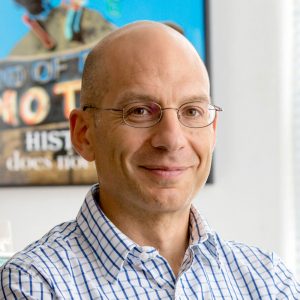Creative Research Medal 2005
Michael P. Winship is one of America’s leading scholars of puritanism. His second book, Making Heretics: Militant Protestantism and Free Grace in Massachusetts, 1636-1641, describes the famous struggles that took place in the Massachusetts Bay Colony during that period, struggles which 19th century historians misleadingly called the “Antinomian Controversy.”
What started out as religious quarrels over assurance of salvation escalated into a political conflict that brought the colony to the brink of extinction. Dr. Winship, through extensive fresh research in both English and American archives, has fundamentally recast this familiar story and its cast of characters. He has thereby reshaped our understanding of early American puritanism and deepened our understanding of its impact, both in America and England.
“He makes plain that the principal contenders and negotiators were not the ones we have long supposed,” wrote Michael Zuckerman, a leading expert on American history at the University of Pennsylvania. “Readers of this remarkable book will never think of American Puritanism as they did… Winship is one of the finest students of American Puritanism, ever.”
Dr. Winship’s new book, The Times and Trials of Anne Hutchinson: Puritans Divided, will be published in May 2005.

 Distinguished Research Professor 2017
Distinguished Research Professor 2017